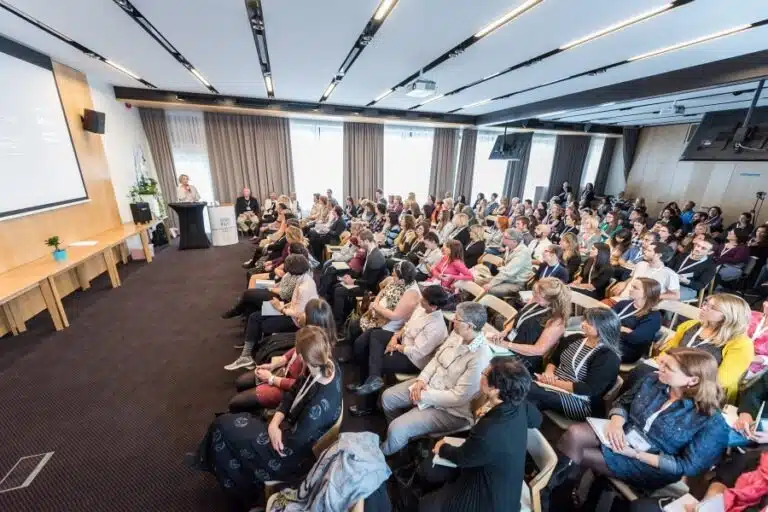Webinar Recordings:
Montessori & EU Competencies for Life Long Learning: Entrepreneurship
Entrepreneurship, as defined by the European Union, is not only about starting businesses - it is the ability to act on opportunities and ideas, and to transform them into value for others.
This competence embraces creativity, initiative, responsibility, resilience, and collaboration - qualities that Montessori education has been fostering in children for more than a century.
Multilingualism in the Elementary Montessori classrooms in the context of EU key competences
How does multilingualism support the development of confident, culturally aware global citizens?
This webinar connects the Montessori approach with the EU Key Competences and CEFR, offering insights into how language learning nurtures the whole child.
Montessori Education & Citizenship - Beyond Social Cohesion
How Montessori School support the development of democratic culture at all levels of education with the aim of cultivating graduates who understand their role as active, informed and responsible citizens.
Montessori Elementary: Cultivating Lifelong Skills for the Digital Age
Discover how Montessori education uniquely prepares children for the challenges and opportunities of the digital world.
Cosmic Education and Key EU Competencies
Kyla will explore how this Montessori approach for 6-12-year-olds directly connects to the key competencies for lifelong learning.
Montessori Philosophy and Cultural Awareness
In Montessori education, universal human needs (food, shelter, culture, beauty) and human tendencies (exploration, order, communication) shape learning. These concepts are central to Cosmic Education, helping children understand humanity through shared experiences
The Role of invented spelling and grammar
The children’s spelling mistakes are often a cause for anxiety in teachers and parents, and they tend to make a lot of them once they start writing texts.
STEM - Science, Technology, Engineering, Mathematics competencies and Maria Montessori Science - based Pedagogy
How can the European Union’s STEM competencies in science, technology, engineering, and mathematics be effectively developed in Montessori classrooms for children aged 6 to 12?
About this series and project:
In today’s society, Montessori elementary education is often overlooked, misunderstood, and underestimated as being out of step with modern needs. We want to change this perception by revealing the true value of Montessori—a hidden gem that fosters remarkable growth and learning in elementary classrooms every day. Our goal in educating elementary-aged children is to nurture them as global citizens, equipped with the skills they need to thrive in the world. For the future leaders and innovators, developing the eight key competencies outlined by the European Union is essential. Montessori Elementary schools have been committed to this holistic approach for years.
Our message to teachers: each day, you engage in the vital and inspiring work of shaping young minds, and we are here to support you by giving voice to your efforts, so you can feel empowered and confident in your role.
Our message to parents: have confidence in the Montessori Elementary experience—your children are cultivating the eight EU key competencies each and every day.

Goal of the project:
Our aim of this project is to create a valuable digital free resource for teachers and school admins that gives guidelines how EU Key Competencies are incorporated into Montessori elementary education theoretically and practically.
Project Coordinator: UAB Montessori akademija
Identifier: 2023-2-LT01-KA210-SCH-000184526
Duration: January 1, 2024 - December 31, 2025
EC Contribution: €60,000
Partners: Montessori Institute Prague s.r.o. (CZ) , MONTE PLUS (SK) , Montessori
skoly Andilek - materska skola a zakladni skola, o.p.s (CZ) , Jolly
HOMESCHOOL, s.r.o. (SK)
Project card: https://erasmus-plus.ec.europa.eu/projects/search/details/2023-2-LT01-KA210-SCH-000184526
Activities of the project:
Online meetings - COMMUNITY CONVERSATIONS
Where we will discuss EU key competencies building in Elementary classroom with wider community of Elementary aged children teachers and parents
'Citizen of the World' guidelines
are being developed by our methodological team. They will be suitable for teachers, showcasing bes practices in Montessori Elementary key competency building.
Online international conference
on the Elementary Child as a Citizen of the World.




Do you have any questions?









